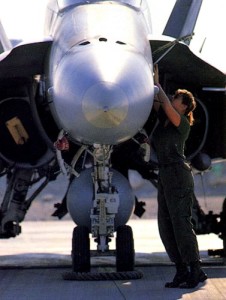Six CF-188 Hornet fighter jets (popularly known as CF-18s) involve in air strike missions against the ISIS forces in Iraq and Syria will be flying home by Feb.22 as the military switches towards a training-focused strategy in its war against the terrorist group.
“The Canadian Armed Forces will now be allocating more military resources to training Iraqi security forces,” Prime Minister Justin Trudeau said yesterday. “We will be supporting and empowering local forces to take their fight directly to (ISIS) so that, kilometre by kilometre, they reclaim their homes, their land, their future.”
Canada’s aerial refuelling and surveillance operations will continue. CF-18 airstrikes will cease no later than February 22.
— Justin Trudeau (@JustinTrudeau) February 8, 2016
Trudeau made the announcement in Ottawa alongside Defence Minister Harjit Sajjan, Foreign Affairs Minister Stephane Dion and International Development Minister Marie-Claude Bibeau.
RELATED CONTENT
ISIS, Paris attack top of mind in Halifax security forum
Government office begins work in finding cheaper CF-18 replacements
Is a coherent and affordable national defence strategy possible?
Six CF-18s are involved in bombing ISIS targets, and 69 Special Forces personnel training Kurdish fighters in northern Iraq. Their mission ends on March 31, but the Liberal government wants it extended to March 31, 2017.

The government also said that while the fighter planes will be going back to Canada, two CP-140 Aurora reconnaissance aircraft and one CC-150 aerial refueling aircraft will remain in the theatre.
Under the new plan, Trudeau said, the training and assisting mission will triple to 207 Special Forces and Canadian Forces personnel will grow from 650 to 830. Their mission will remain non-combat.
Interim Conservative leader Rona Ambrose called Trudeau’s “a shameful step backward.”
The prime minister also announced the commitment of $1 billion in aid and development support, including $840 million over the next three years in humanitarian assistance and $270 million for social services.
The country also committed $650 million in humanitarian aid for people affected by the Syrian civil war as well as $233 million in long-term development assistance for countries hosting Syrian refugees.